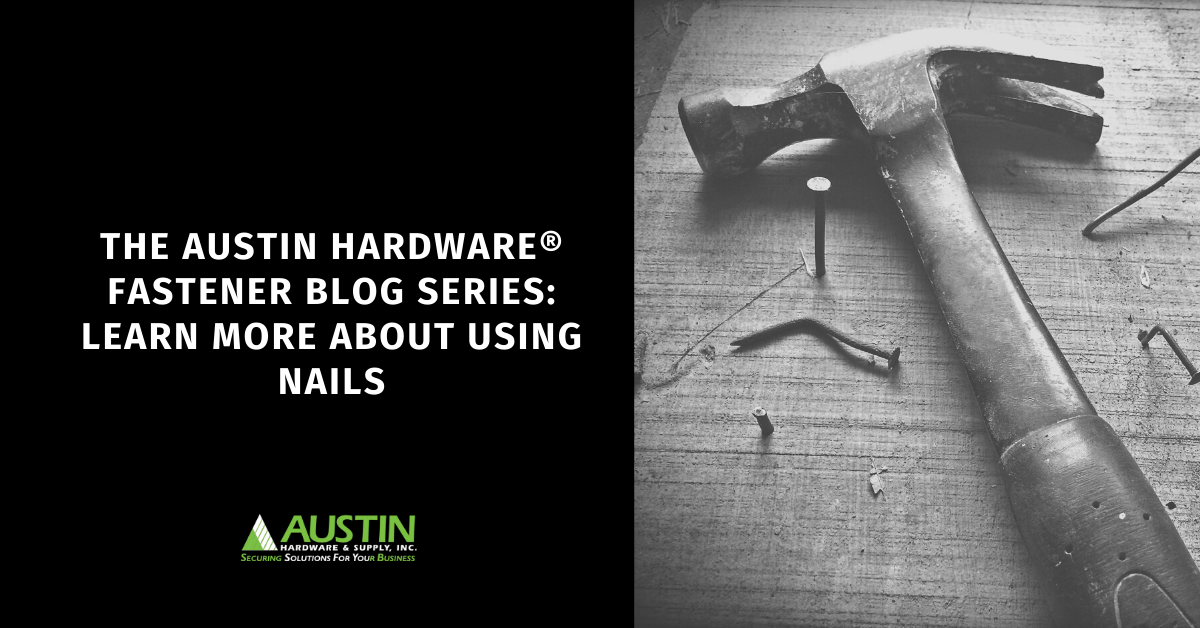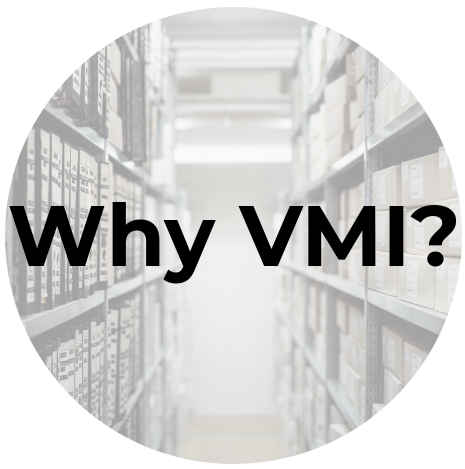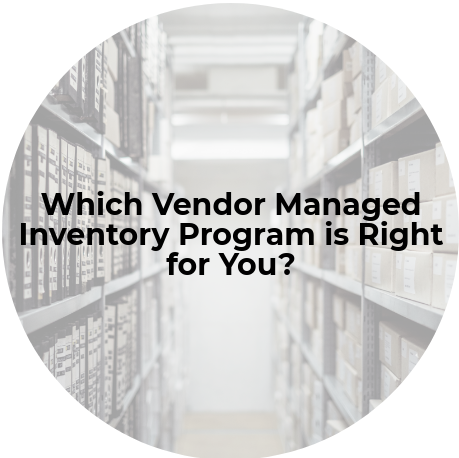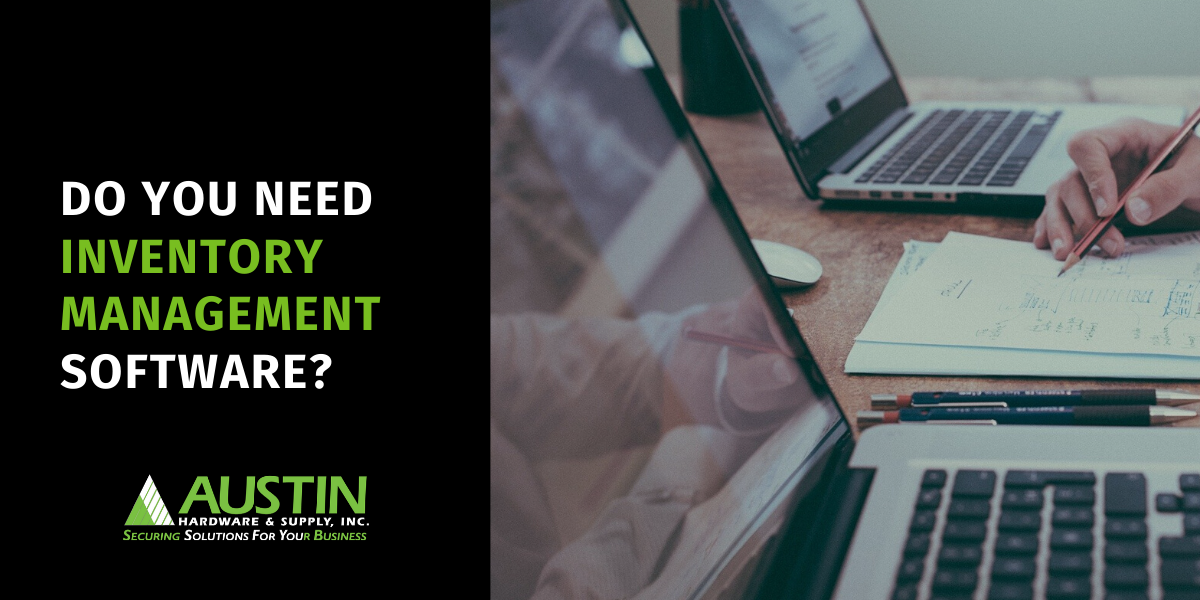If you’re in the construction or woodworking business, you’re using nails every day. Homeowners often find themselves looking for just the right nail for their DIY projects. Even the core customers of Austin Hardware®, which are in the transportation and metal fabrication businesses, industries in which nails are not a predominant fastener, find the occasional need for nails for different projects such as constructing shipping containers for their products.
The Austin Hardware® Fastener Blog Series: Learn More About Using Nails
Topics: Vendor Managed Inventory, inventory management, fasteners
The Importance of KPIs
The use of impartial, dispassionate data to measure business success is critical. It reassures you when you’re doing something correctly, and helps you make adjustments to your plan when needed. These metrics, often referred to as Key Performance Indicators (KPI's) apply to every business and every department, whether evaluating sales, marketing, operations, or purchasing.
In the area of inventory management, dozens of KPI's can be measured depending on the nature of your business. As a Vendor Managed Inventory (VMI) provider, the metrics we value offer insight into both your inventory as well as our performance. We believe measuring the program, and the act of sharing with you this critical data is just as important as keeping stock on your shelves.
Topics: Vendor Managed Inventory, Warehouse Management, inventory management
Why Your Replenishment Process Needs To Include Vendor Inventory Management
For many companies, a Vendor Managed Inventory program is a better way to handle replenishment.
The natural question for you to ask now is … why? What are the benefits of having a supplier manage MY inventory? In a word … MONEY.
Now that’s obviously an oversimplification. But when you break it down and look at all the different parts of the replenishment cycle a VMI program can impact, it becomes easy to see the benefits.
Let’s take a more detailed look.
There are a number of options, and plenty of decisions to make for companies considering a Vendor Managed Inventory (VMI) program. Depending on a company’s goals, budget, and available resources they’ll have to decide on the type of VMI program, to what extent the VMI provider’s personnel will be used, how products in your program are going to be replenished and accessed, and more.
We’ll look at a few of these options in this post.
There are essentially two types of VMI programs
Both Non-Consigned and Consigned VMI programs offer customers a similar list of benefits, which you can read more about HERE.
Two Bin Stocking System - Warehouse Inventory Management
Are you a manufacturing company? If so, does your business depend on inventory to get by? If you answered yes to one or both questions you might be familiar with a two-bin system. A widely used inventory management system, a two-bin system basically deals with two bins to help you or your team keep track of inventory. It helps you determine when inventory is full, low, and needs replenishing. A two bin system often exists in production lines where multiple parts come together to create a new product.
Inventory Management Software - Why You Need It!
Why Do You Need Inventory Management Software?
Inventory management is a crucial part of your business and having a solid system in place to help you run business is as important as your inventory. If your business depends on inventory you need to be sure that you are running things smoothly. This means preparing for the future, having the correct levels of inventory, monitoring your supply chain and more. If you’re still doing things the old-fashioned way, it might be time to ask yourself: Why? Why deal with uncertainties, unnecessary business challenges, and headaches that ultimately cost you money when there is an easy solution for your business. If you’re using out of date systems like spreadsheets, two-bin systems, and anything else leaving room for error, it’s time to consider new methods for growing your business.
Topics: Vendor Managed Inventory, Warehouse Management, inventory management
Inventory Management | Non-Consigned Vendor Managed Inventory
There are two types of VMI program – Non-Consigned and Consigned.
Both Non-Consigned and Consigned VMI programs offer customers a similar list of benefits, which you can read more about HERE.
In a Consigned VMI program, the inventory is put in place, but the customer doesn’t pay for it until it’s consumed. You can learn more about a Consigned program HERE.*
* It should be noted that the benefits of Consigned expressed here are relative to Consigned VMI, not simply Consigned inventory. One can have Consigned inventory absent a VMI program.
The more traditional of the two programs is Non-Consigned VMI. In a Non-Consigned program, the customer pays for the inventory as it’s brought in, and whenever replenishment is necessary.
Inventory Management Designed To Improve Your Bottom Line.
There are many ways that selecting the right Vendor Managed Inventory (VMI) partner can simplify your business and help you to start saving time, money, and improve your bottom line.
Let’s break down what VMI is all about.
Is Consigned Vendor-Managed Inventory (VMI) the Right Choice for Your Business?
So, what exactly is Consigned Vendor Inventory Management? Let’s break it down into two parts – Consigned Inventory and Vendor Managed Inventory.
Consigned Inventory is inventory that is still owned by the supplier, but the customer has on hand. When the customer uses or sells the inventory, the supplier THEN gets paid. There are a few reasons why this works, but a big one is that the customer frees up capital that would otherwise be needed to purchase the inventory in advance. This creates a form of financial security and freedom for the customer.
Learn Our Top 7 Benefits of Vendor-Managed Inventory for Your Business.
Vendor Managed Inventory, or VMI, is an inventory replenishment strategy in which the supplier monitors and may even physically replenish the customer's stock. When you form a VMI relationship with a provider, they handle the stress of inventory so that you can focus on other aspects of your business.
By letting the right provider manage your inventory, you can invest time in building relationships, increasing sales, and tackling other things that help your business reach long-term success.

















